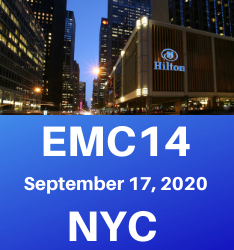|
|
|
|
|
Virginia Senate, House Both Pass Scaled Down Bill Allowing Limited Pilot For Handful Of Customers To Aggregate Non-contiguous Sites To Take Competitive Retail Supply
The following story is brought free of charge to readers by EC Infosystems, the exclusive EDI provider of EnergyChoiceMatters.com
The Virginia Senate has passed a substitute for HB 889, with the substitute significantly reducing the retail electric choice provisions versus the original version passed by the House
The House has agreed to the Senate's substitute. The bill awaits action by the governor
--- Enjoy reading this exclusive news? Help us continue to bring you EnergyChoiceMatters.com by telling your colleagues about us and our email alerts, or sharing us and our stories on Linked In or your preferred platform.
As previously reported by EnergyChoiceMatters.com, the original bill as initially passed by the House would have eliminated a contiguous site requirement for a single customer to aggregate to the current 5 MW threshold allowing a customer to take retail electric choice, provided that the non-contiguous aggregated customer's supply meets the state's minimum renewable energy percentage
The Senate substitute, now passed by both chambers, authorizes, on a "pilot" basis at Dominion Virginia Power only (not Appalachian Power), a handful of specific customers, with participation capped at 200 MW, to aggregate their non-contiguous loads to a 5 MW threshold to take competitive electric supply -- with such customers being those who previously filed such aggregation applications with the State Corporation Commission.
It is understood that the bill applies to eight customers. Such customers who have applied to the SCC for non-contiguous aggregation to take competitive supply have included Walmart, Costco, Target, Harris Teeter, Kroger, Safeway, and Cox. During a discussion of the substitute, it was represented that the 200 MW cap represents the load of customers who would be eligible under the bill
The pilot is to terminate after two years; the substitute bill's language does not provide for the pilot to continue after such time.
Specifically, the substitute for HB 889 provides that, "That the State Corporation Commission (the Commission) shall conduct a pilot program under which two or more nonresidential customers that, as of February 25, 2019, had filed applications seeking to aggregate their load pursuant to subdivision A 4 of § 56-577 of the Code of Virginia within the service territory of a Phase II Utility, as that term is defined in subsection A of § 56-585.1 of the Code of Virginia, shall be permitted to purchase electric energy from any supplier of electric energy licensed to sell electric energy within the Commonwealth, subject to the following terms, conditions, and restrictions[.]"
The substitute for HB 889 provides the terms for the pilot as follows:
a. A pilot program shall be conducted within the certified service territory of the Phase II Utility in which such nonresidential customers are located.
b. The aggregated load participating in the pilot program shall not exceed 200 megawatts.
c. All customers participating in the pilot program shall be subject in all respects to the provisions of subdivision A 3 of § 56-577 of the Code of Virginia (with participation in this pilot program being deemed to satisfy subdivision A 4 of § 56-577 of the Code of Virginia), with the load set forth in each application being treated as a single, individual customer for purposes of said subdivision, and shall submit an annual report to the Commission by March 31 each year to demonstrate that, for the preceding calendar year, such load continued to meet the demand limitations of subdivision A 3 of § 56-577 of the Code of Virginia.
Unlike the version of the bill originally passed by the House, the substitute no longer addresses existing provisions concerning the ability of all customers to take competitive supply if such supply is 100% renewable and if the incumbent utility does not offer a qualifying 100% renewable tariff (see discussion of the House version here). As noted above, the House has, in a vote, agreed to the Senate substitute
The Senate also passed an amended HB 868, a stand-alone bill only addressing the current renewable electricity exemption for competitive supply, and which would allow customers to purchase 100% renewable electricity from a competitive retail supplier regardless of whether the incumbent utility offers a qualifying 100% renewable tariff
The Senate amended HB 868 includes a "re-enactment clause", which requires that the bill again pass the 2021 General Assembly before becoming law.
The House voted to reject the Senate's amendment. However, such action was anticipated, as the clause was included to allow the bill to proceed to conference to develop further revisions. Specifically, as previously reported, a patron of the bill said that he is working with Dominion concerning a revised version of the bill and potential pilot.
ADVERTISEMENT Copyright 2010-20 Energy Choice Matters. If you wish to share this story, please
email or post the website link; unauthorized copying, retransmission, or republication
prohibited.
Revived Bill Allowing Customers To Take 100% Renewable Energy From Supplier Regardless Of Utility Green Offering Passed By Senate, Differs From House
March 6, 2020
Email This Story
Copyright 2010-20 EnergyChoiceMatters.com
Reporting by Paul Ring • ring@energychoicematters.com
NEW Jobs on RetailEnergyJobs.com:
• NEW! -- Senior Retail Energy Markets Pricing Analyst
• NEW! -- Energy Market Analyst -- DFW
• NEW! -- Senior Consultant - Competitive Energy Markets -- Houston
• Channel Relations Manger -- Retail Supplier
• Customer Service Representative -- Retail Supplier
• Renewables and Energy Trader -- Retail Supplier
|
|
|
|









